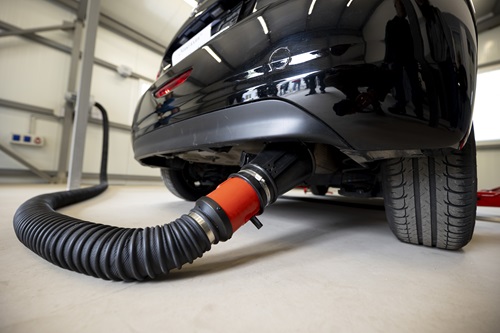
Keeping your car road-ready requires passing an annual vehicle inspection. However, many drivers find themselves caught off guard when their car fails, often for reasons that could have been avoided with a little preparation and regular auto maintenance.
For example, something as simple as a loose gas cap or a more complex issue like a malfunctioning catalytic converter could lead to failure. Understanding the most common reasons vehicles fail these inspections can help you avoid unnecessary frustration. Let’s explore the typical culprits and how you can make sure your vehicle passes every time.
What is a Vehicle Inspection, and Why Does It Matter?
To start with, it’s essential to understand what a vehicle inspection involves. Each year, vehicles are required to go through a mandatory inspection to ensure they meet safety and emissions standards. This process checks several parts of your car to confirm that everything is in good working order and safe for the road.
In some areas, the inspection includes an emissions test to ensure that your car is not releasing more pollutants than allowed. If your car does not pass, you won’t receive a new inspection sticker, which means you can’t legally drive it until the necessary repairs are made.
Key Areas Checked During a Vehicle Inspection
When your car goes in for an inspection, several critical components will be reviewed:
- Brakes: It’s vital that your brake pads and overall system are working correctly to ensure safety.
- Tires: The tread depth and condition of your tires are crucial for safe driving.
- Emissions Components: Elements like the catalytic converter, oxygen sensors, and other parts of the emissions system need to comply with environmental standards.
- Additional Safety Features: The horn, windshield wipers, mirrors, seat belts, and exhaust system will also be inspected to make sure they are in good shape.
Common Reasons Vehicles Fail Emissions Tests
There are several reasons a car might not pass an emissions test. Here are some of the most frequent issues:
1. Check Engine Light
First and foremost, a check engine light is a common cause of inspection failures. This warning light indicates that something is wrong, ranging from a minor sensor problem to a more serious issue like a failing catalytic converter. If the light is on, your vehicle will automatically fail the auto inspection in Knoxville TN.

Auto maintenance in Knoxville TN
2. Clogged Air Filter
Additionally, a clogged air filter can cause trouble. The car needs a precise balance of air and fuel to run efficiently. If the air filter is blocked, it can make the engine “run rich,” burning more fuel than necessary and increasing emissions. Even if this issue doesn’t trigger the check engine light, it can still cause your vehicle to fail the test.
3. Loose Gas Cap
Surprisingly, a loose gas cap is another frequent reason for failure. If the gas cap isn’t securely tightened, it can cause a vacuum leak in your fuel system, which could trigger the check engine light. Since this light leads to automatic failure, it’s important to check the cap before the inspection and auto maintenance in Knoxville TN.
4. Emissions System Issues
Problems with the emissions system, such as malfunctioning catalytic converters or oxygen sensors, can lead to higher-than-allowed pollutant levels. Since some regions have strict emissions standards, these issues can easily cause a failed inspection.
5. Vehicle Sitting Idle for Too Long
If your car has been parked for an extended period, it may fail the emissions test because of increased pollutant levels. Even if the vehicle seems to run fine, a period of inactivity can lead to carbon build-up and other contaminants, resulting in a failed test. To prevent this, try driving your vehicle for about 50 miles before taking it in for an auto inspection to help clear any build-up.
6. Worn-Out Brakes
Your brake condition also plays a crucial role in passing a vehicle inspection. If your brake pads are too thin or the braking system isn’t functioning correctly, it could lead to failure. Unfortunately, most cars don’t have a sensor that warns drivers when the brake pads are worn out, so it’s a good idea to check them regularly.
7. Tire Issues
Lastly, low tire tread can cause your vehicle to fail. The penny test is the fastest way to determine the tread depth is by using the penny test.
Auto Maintenance and Prevention Tips
Thankfully, there are a few steps you can take to ensure your car passes the inspection without any issues. For instance:
- Check Warning Lights: Make sure to address any problems that could cause the check engine light to turn on.
- Inspect the Air Filter: Replace a dirty or clogged air filter to reduce emissions.
- Tighten the Gas Cap: Double-check that the gas cap is secure to avoid a vacuum leak.
- Drive the Car Regularly: A short drive before the inspection can help burn off any carbon build-up.
- Examine Your Tires and Brakes: Ensure they meet minimum safety standards to prevent any unexpected failures.
No one likes dealing with the inconvenience of a failed vehicle inspection. By understanding the common reasons for failure and taking simple, preventative steps, you can save time and money. With the help of Miller Brothers Transmission Auto Repair and Body Shop, regular auto maintenance and a few quick checks are the keys to keeping your car in great shape and ensuring it passes the inspection on the first try.
Don’t wait until the last minute. Schedule a vehicle check-up and auto maintenance service today and make sure your car is in top condition. Keep your car road-ready and safe — book your appointment with Miller Brothers Transmission Auto Repair and Body Shop now!
Like our Facebook page for more information about auto services.
Miller Brothers Transmission Auto Repair and Body Shop
7123 Tazewell Pike
Corryton, TN 37721
(865) 689-5072
https://www.millerbrosautorepair.com/
Serving Knoxville, TN and Knox County
Service areas include: All of Knox County, Corryton, Fountain City, Halls Crossroads, Powell and Knoxville

No comments:
Post a Comment